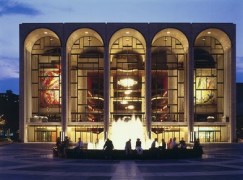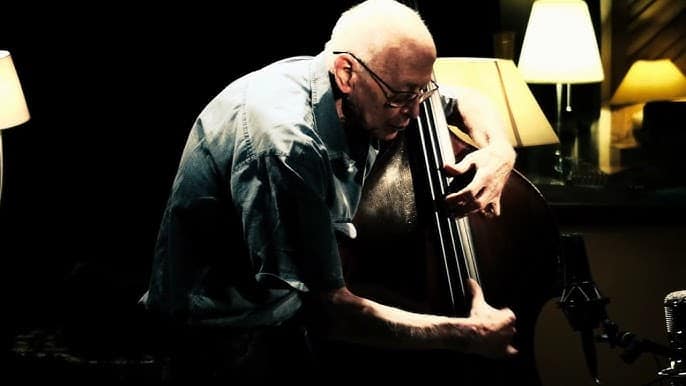More savings volunteered by Met musicians
mainMusicians of the Metropolitan Opera orchestra have identified a further $1.2 million in savings, raising the total to $31m. They maintain the company is in trouble because of Peter Gelb’s admitted profligacy. They add: The Met needs to address the real problems of artistic and financial mismanagement.
Full statement below.

New York, NY–Tuesday, July 29, 2014–The MET Orchestra Musicians love the Metropolitan Opera and want it to succeed. For 30 years they have had excellent labor relations, and had hoped that respectful exchange would continue.
This past Friday, July 25, the musicians and Local 802 made a detailed presentation in support of the union’s comprehensive proposals to the Met, detailing savings of over $30 Million. On Saturday, July 26, the Met responded to that presentation and did not accept any of Local 802’s proposals. Local 802 prepared a further response to the Met’s comments on the presentation. As it was being offered, the Met representatives indicated that they were not considering the presentation and would only entertain acceptance of the Met’s proposals made on February 26th. Met management has not changed any of those proposals.
The following link contains an updated presentation responding to the Met’s rebuttals, and proposing a further cost savings, to bring the total savings to $32.2 Million.
CLICK TO READ THE REVISED MUSICIAN’S REPORT. This document (which was presented to management on 2014-07-25) will remain posted online indefinitely, and will be a “living document.” It will be constantly updated with any necessary emendations and corrections, which the musicians will fully acknowledge and document.
The Met Musicians report also address the following points:
- Met Musicians Support Innovation: We support new productions, but new productions premiered under Peter Gelb have been widely criticized by the press and have negatively affected box office returns. New productions under Peter Gelb are reviewed negatively over 60% of the time, while the MET Orchestra is reviewed positively over 80% of the time.
- New productions that premiered under Peter Gelb have been poorly received by critics and the public: There is a direct correlation between negative critical reception and box office returns for revivals that were premiered under Peter Gelb. Increased ticket prices and an increased number of these revivals negatively impacted revenue.
- Opera is not “Dying” as Mr. Gelb claims, but is in fact thriving at other opera houses: Other opera companies have recently shown success in ticket sales and fundraising. Their leaders believe in the future of the art form and value a commitment to artistic excellence.
- Reductions in compensation would devastate the MET Orchestra’s ability to attract and retain top talent. The MET Orchestra works 30% more than its peers for similar wages. A decline in compensation would make the MET Orchestra a far less attractive destination for the world’s best musicians.
- Peter Gelb has exploded the Met’s budget on productions that have not shown a good return on investment: Peter Gelb took a balanced budget and increased it by 50%. Three quarters of that increase came from Media, New Productions, and “Other.” The Met currently spends an average of over $1 million more on each new production, inflation-adjusted, than it did prior to Peter Gelb’s arrival.
- The Excellence of the MET Orchestra is one of the Met’s Strongest Assets:The MET Orchestra has achieved extraordinary critical acclaim and garnered numerous awards. Reducing the investment in the orchestra, and the resulting increase in turnover, would have devastating effects on the artistic quality of the Metropolitan Opera.
- The Met needs to address the real problems of artistic and financial Mismanagement: Cutting employee compensation does nothing to address the Met’s deeper problem of financial and artistic mismanagement.
The MET Orchestra Musicians’ Report is accompanied by a letter from Jessica Phillips Rieske, Acting Principal Clarinetist and Chair of the MET Orchestra Committee, explaining the timbre of negotiations and actions on the parts of Peter Gelb that have made it necessary to clarify facts and make their case in the public arena:
In the interest of full disclosure and transparency, the MET Orchestra Musicians wish to directly address the nature and format of these negotiations. We deeply regret that these contentious negotiations are taking place in such a public arena: for 34 years we have enjoyed labor peace, and all negotiations were conducted behind closed doors with a media blackout that all parties followed.
Peter Gelb made this negotiation different. Our Orchestra Committee received his initial proposals on Wednesday, February 26, 2014. On Thursday, February 27, 2014, the New York Times posted an article highlighting Mr. Gelb’s proposals. The article states that its sources for this information were “three people with knowledge of the proposal” who had requested anonymity. The union did not give this story to the New York Times. It was only when contacted for response that the union president stated “We’ve never received a set of proposals from the Met that represented such a devastating reduction in pay.” The “media blackout” was over before it could ever begin.
We now find ourselves in the position of having to make our case publicly, but we are nevertheless committed to doing it with the utmost accuracy and transparency….We hope that our data-driven approach to find solutions for the Metropolitan Opera will lead to an open opera house, a salvaged season, and a sustainable future for many decades.
###
###





The principal cost savings they identify is slashing the production budget by 50%, Never mind that the bulk of that $11 million they are “saving” is coming out of the pockets of union seamstresses, scene painters and stage managers.
Another cost center they target is rehearsal time, and as we all know, nothing assures artistic excellence in an opera house like not rehearsing.
Two flaws in that argument.
1. Gleb himself has stated unequivocally that new production costs are met in full by donors! So the reduction theoretically would come out of no-one’s pocket. Unfortunately it also means there are no savings – unless, as I proposed in another thread, donors continue to pay the same amount as at present and the balance is put into running costs (or towards those cost overruns on the physical production costs that, we are told by another reader, are presently hidden away in other parts of the running budget through creative accounting).
2. Rehearsals are indeed a key factor in developing artistic excellence – but only one of several. Far more pertinent, though, is not the length of each rehearsal but the way in which a conductor uses the time at his disposal. Everyone in the music business knows there are conductors who can and do achieve extraordinary results on a relatively small number of rehearsals. Others will use up every second of their allocated time and then inform the management they need to work overtime . Sometimes – not always, I admit – this is simply because the conductor himself is unable to control his use of the allocated time; in other cases, he has needlessly wasted time.
That said, I accept that the scheduling of an opera orchestra is quite different from, say, a symphony orchestra. It might be possible to shave time off the initial rehearsals, but by the time you get to the sitzproben and the stage/orchestra rehearsals, I doubt if much time could be saved without sacrificing the artistic end product.
So the reduction theoretically would come out of no-one’s pocket.
I don’t see it that way. Let us say, for example, that the Met plans to create a new production of La Wally, budgeted at $2 million. Obviously a significant portion of that $2 million would go to fees paid to the director, designers and their various assistants, and another portion would be spent on the various materials, fabrics for the costumes and plywood for the sets.
But who sews those costumes? Who paints those sets? Who climbs into the catwalk to focus the lights? Who moves the scenery onstage for the beginning of the rehearsal and off again when it’s time to set up for the repertory opera of the night? Who transports the scenery to the warehouse and back? And who cleans and presses the costumes and assists the singers with changes?
These are all union jobs, and if the production doesn’t happen, all the work hours that go into creating the production also don’t happen. So slashing the production budget means that the orchestra maintains their own very handsome compensation at the cost of other union workers who aren’t working.
Those in the technical and costume departments are on record as saying they work too much overtime as it is under Gelb’s new regime. Without your new production of “La Wally”, there would be less overtime, the staff would have more time with their families and the Met would save some of its costs. Plus, you forget that if there were no new production, there woulds be a revival. That still requires refurbishment of sets and costumes, along with lighting and technical rehearsals. Some overtime, but less – unless Gelb scheduled revival of “Götterdämmerung” in its place!
At least the musicians are trying. It is Gelb’s way or the highway. This is classic Gelb acting like a child holding everyone hostage because he is not getting his way. Not once has he wavered on his side. A “negotiation” works when BOTH sides make concessions. Rather than compromise his lofty and ridiculous artistic vision that he unbelievably believes people like and enjoy, he is sacrificing everything and blaming everyone but himself. Like I said, classic Gelb. The institution and art form he supposedly cares so much for, will suffer at his hand.
It was reported a couple days ago that Gelb has offered a package that would represent about 10% of cuts instead of the originally demanded 18%. So, in fact, he has “wavered.”
If Gelb is now offering 10% cuts, he has not “wavered” as you suggest. He has simply followed classic negotiating practise!